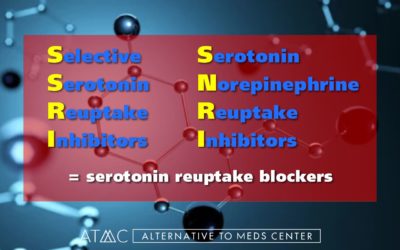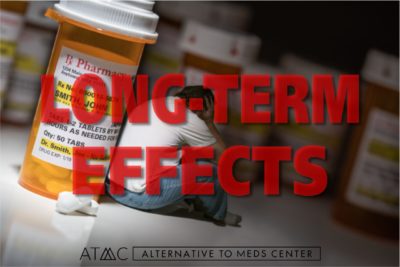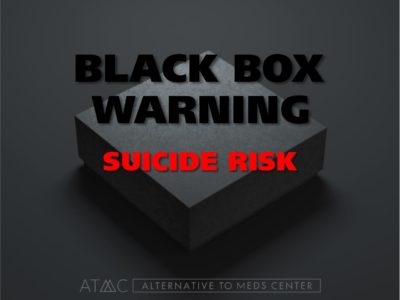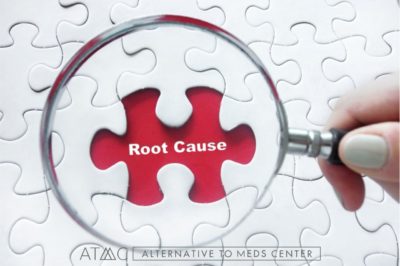1. Nicholson S, Peterson J, Yektashenas B. Pharmaceutical industry perspective on risk evaluation and mitigation strategies: manufacturer take heed. Expert Opin Drug Saf. 2012 Mar;11(2):299-314. doi: 10.1517/14740338.2012.650689. Epub 2012 Jan 10. PMID: 22233294. [cited 2022 Dec 7]
2. Rodriguez-Monguio R, Spielberger K, Seoane-Vazquez E. Examination of risk evaluation and mitigation strategies and drug safety in the US. Res Social Adm Pharm. 2014 Jan-Feb;10(1):232-8. doi: 10.1016/j.sapharm.2013.03.005. Epub 2013 Apr 20. PMID: 23611865. [cited 2022 Dec 7]
3. Fleming TR, Demets DL, McShane LM. Discussion: The role, position, and function of the FDA-The past, present, and future. Biostatistics. 2017 Jul 1;18(3):417-421. doi: 10.1093/biostatistics/kxx023. PMID: 28633307; PMCID: PMC5862299. [cited 2022 Dec 7]
4. Chu A, Wadhwa R. Selective Serotonin Reuptake Inhibitors. [Updated 2022 May 8]. In: StatPearls [Internet]. Treasure Island (FL): StatPearls Publishing; 2022 Jan-. Available from: https://www.ncbi.nlm.nih.gov/books/NBK554406/ [cited 2022 Dec 7]
5. Aakjær M, De Bruin ML, Kulahci M, Andersen M. Surveillance of Antidepressant Safety (SADS): Active Signal Detection of Serious Medical Events Following SSRI and SNRI Initiation Using Big Healthcare Data. Drug Saf. 2021 Nov;44(11):1215-1230. doi: 10.1007/s40264-021-01110-x. Epub 2021 Sep 8. PMID: 34498210; PMCID: PMC8553683. [cited 2022 Dec 7]
6. Skånland SS, Cieślar-Pobuda A. Off-label uses of drugs for depression. Eur J Pharmacol. 2019 Dec 15;865:172732. doi: 10.1016/j.ejphar.2019.172732. Epub 2019 Oct 14. PMID: 31622593. [cited 2022 Dec 7]
7. Shakeel S, Nesar S, Rehman H, Jamil K, Mallick IA, Mustafa MS, Anwar M, Jamshed S. Patterns and Predictors of Off-Label Drug Prescribing in Psychiatric Practice: A Qualitative Study. Pharmacy (Basel). 2021 Dec 20;9(4):203. doi: 10.3390/pharmacy9040203. PMID: 34941635; PMCID: PMC8703660. [cited 2022 Dec 7]
8. Fava GA, Offidani E. The mechanisms of tolerance in antidepressant action. Prog Neuropsychopharmacol Biol Psychiatry. 2011 Aug 15;35(7):1593-602. doi: 10.1016/j.pnpbp.2010.07.026. Epub 2010 Aug 20. PMID: 20728491. [cited 2022 Dec 7]
9. Fava GA. Can long-term treatment with antidepressant drugs worsen the course of depression? J Clin Psychiatry. 2003 Feb;64(2):123-33. doi: 10.4088/jcp.v64n0204. PMID: 12633120. [cited 2022 Dec 7]
10. Akiskal HS, Benazzi F. Does the FDA proposed list of possible correlates of suicidality associated with antidepressants apply to an adult private practice population? J Affect Disord. 2006 Aug;94(1-3):105-10. doi: 10.1016/j.jad.2006.04.002. Epub 2006 Jun 12. PMID: 16766043. [cited 2022 Dec 7]
11. Herder M. Pharmaceutical Drugs of Uncertain Value, Lifecycle Regulation at the US Food and Drug Administration, and Institutional Incumbency. Milbank Q. 2019 Sep;97(3):820-857. doi: 10.1111/1468-0009.12413. Epub 2019 Aug 12. PMID: 31407412; PMCID: PMC6739605. [cited 2022 Dec 7]
12. Hirschfeld RM. Long-term side effects of SSRIs: sexual dysfunction and weight gain. J Clin Psychiatry. 2003;64 Suppl 18:20-4. PMID: 14700451. [cited 2022 Dec 7]
13. Oliva V, Lippi M, Paci R, Del Fabro L, Delvecchio G, Brambilla P, De Ronchi D, Fanelli G, Serretti A. Gastrointestinal side effects associated with antidepressant treatments in patients with major depressive disorder: A systematic review and meta-analysis. Prog Neuropsychopharmacol Biol Psychiatry. 2021 Jul 13;109:110266. doi: 10.1016/j.pnpbp.2021.110266. Epub 2021 Feb 5. PMID: 33549697. [cited 2022 Dec 7]
14. Hetrick SE, McKenzie JE, Cox GR, Simmons MB, Merry SN. Newer generation antidepressants for depressive disorders in children and adolescents. Cochrane Database Syst Rev. 2012 Nov 14;11(11):CD004851. doi: 10.1002/14651858.CD004851.pub3. PMID: 23152227; PMCID: PMC8786271. [cited 2022 Dec 7]
15. Ogbru A, Ogbru O, Comprehensive List of Antidepressant Medications published online by Rxlist 08/04/2022 [cited 2022 Dec 9]
16. FDAA Certification to Accompany Drugs…. published online 03/28/2018 [cited 2022 Dec 9]
17. Berger M, Gray JA, Roth BL. The expanded biology of serotonin. Annu Rev Med. 2009;60:355-66. doi: 10.1146/annurev.med.60.042307.110802. PMID: 19630576; PMCID: PMC5864293. [cited 2022 Dec 9]
18. Bamalan OA, Moore MJ, Al Khalili Y. Physiology, Serotonin. [Updated 2022 Jul 9]. In: StatPearls [Internet]. Treasure Island (FL): StatPearls Publishing; 2022 Jan-. Available from: https://www.ncbi.nlm.nih.gov/books/NBK545168/ [cited 2022 Dec 9]
19. Moncrieff J, Cooper RE, Stockmann T, Amendola S, Hengartner MP, Horowitz MA. The serotonin theory of depression: a systematic umbrella review of the evidence. Mol Psychiatry. 2022 Jul 20. doi: 10.1038/s41380-022-01661-0. Epub ahead of print. PMID: 35854107. [cited 2022 Dec 9]
20. O’Donnell J, Zeppenfeld D, McConnell E, Pena S, Nedergaard M. Norepinephrine: a neuromodulator that boosts the function of multiple cell types to optimize CNS performance. Neurochem Res. 2012 Nov;37(11):2496-512. doi: 10.1007/s11064-012-0818-x. Epub 2012 Jun 21. PMID: 22717696; PMCID: PMC3548657. [cited 2022 Dec 9]
21. Hussain LS, Reddy V, Maani CV. Physiology, Noradrenergic Synapse. [Updated 2022 May 8]. In: StatPearls [Internet]. Treasure Island (FL): StatPearls Publishing; 2022 Jan-. Available from: https://www.ncbi.nlm.nih.gov/books/NBK540977/ [cited 2022 Dec 9]
22. Cowen PJ, Browning M. What has serotonin to do with depression? World Psychiatry. 2015 Jun;14(2):158-60. doi: 10.1002/wps.20229. PMID: 26043325; PMCID: PMC4471964.
23. FDA drug label Fetzima XR (levomilnacipran) extended-release capsules for oral use, approved 2009 [cited 2022 Dec 9]
24. FDA drug label Effexor XR (venlafaxine) Extended-release capsules approval 1997 [cited 2022 Dec 9]
25. FDA drug label Paxil (paroxetine hydrochloride) tablets and oral suspension, approval 2008 [cited 2022 Dec 9]
26. FDA Patents Klaus K. Schmiegal Inventions published online [ND] [cited 2022 Dec 9]
27. Wong, D., Perry, K. & Bymaster, F. The Discovery of Fluoxetine Hydrochloride (Prozac). Nat Rev Drug Discov 4, 764–774 (2005). https://doi.org/10.1038/nrd1821 [cited 2022 Dec 9]
28. Mayo-Wilson E, Li T, Fusco N, Bertizzolo L, Canner JK, Cowley T, Doshi P, Ehmsen J, Gresham G, Guo N, Haythornthwaite JA, Heyward J, Hong H, Pham D, Payne JL, Rosman L, Stuart EA, Suarez-Cuervo C, Tolbert E, Twose C, Vedula S, Dickersin K. Cherry-picking by trialists and meta-analysts can drive conclusions about intervention efficacy. J Clin Epidemiol. 2017 Nov;91:95-110. doi: 10.1016/j.jclinepi.2017.07.014. Epub 2017 Aug 24. PMID: 28842290. [cited 2022 Dec 9]
29. An S. Antidepressant direct-to-consumer advertising and social perception of the prevalence of depression: application of the availability heuristic. Health Commun. 2008 Nov;23(6):499-505. doi: 10.1080/10410230802342127. PMID: 19089697. [cited 2022 Dec 9]
30. Zhao Y, Zhang L, Geng Y. Clinical Drug Trial Participation: Perspectives of Pregnant Women and Their Spouses. Patient Prefer Adherence. 2021 Oct 20;15:2343-2352. doi: 10.2147/PPA.S328969. PMID: 34707349; PMCID: PMC8542578. [cited 2022 Dec 9]
31. Morse JE, Calvert SB, Jurkowski C, Tassinari M, Sewell CA, Myers ER. Evidence-based pregnancy testing in clinical trials: Recommendations from a multi-stakeholder development process. PLoS One. 2018 Sep 12;13(9):e0202474. doi: 10.1371/journal.pone.0202474. PMID: 30208049; PMCID: PMC6135366. [cited 2022 Dec 8]
32. Udechuku A, Nguyen T, Hill R, Szego K. Antidepressants in pregnancy: a systematic review. Aust N Z J Psychiatry. 2010 Nov;44(11):978-96. doi: 10.3109/00048674.2010.507543. PMID: 21034181. [cited 2022 Dec 8]
33. Evans EA, Sullivan MA. Abuse and misuse of antidepressants. Subst Abuse Rehabil. 2014 Aug 14;5:107-20. doi: 10.2147/SAR.S37917. PMID: 25187753; PMCID: PMC4140701. [cited 2022 Dec 9]
34. Haddad P. Do antidepressants have any potential to cause addiction? J Psychopharmacol. 1999;13(3):300-7. doi: 10.1177/026988119901300321. PMID: 10512092. [cited 2022 Dec 9]
35. Dwyer JB, Bloch MH. Antidepressants for Pediatric Patients. Curr Psychiatr. 2019 Sep;18(9):26-42F. PMID: 31511767; PMCID: PMC6738970. [cited 2022 Dec 9]
36. FDA drug label Lexapro (escitalopram oxalate) Tablets and Oral solution approval 2002 [cited 2022 Dec 9]
37. Ljungberg T, Bondza E, Lethin C. Evidence of the Importance of Dietary Habits Regarding Depressive Symptoms and Depression. Int J Environ Res Public Health. 2020 Mar 2;17(5):1616. doi: 10.3390/ijerph17051616. PMID: 32131552; PMCID: PMC7084175. [cited 2022 Dec 9]
38. Carek PJ, Laibstain SE, Carek SM. Exercise for the treatment of depression and anxiety. Int J Psychiatry Med. 2011;41(1):15-28. doi: 10.2190/PM.41.1.c. PMID: 21495519. [cited 2022 Dec 9]
39. Simpson CA, Diaz-Arteche C, Eliby D, Schwartz OS, Simmons JG, Cowan CSM. The gut microbiota in anxiety and depression – A systematic review. Clin Psychol Rev. 2021 Feb;83:101943. doi: 10.1016/j.cpr.2020.101943. Epub 2020 Oct 29. PMID: 33271426. [cited 2022 Dec 9]
40. Simpson CA, Mu A, Haslam N, Schwartz OS, Simmons JG. Feeling down? A systematic review of the gut microbiota in anxiety/depression and irritable bowel syndrome. J Affect Disord. 2020 Apr 1;266:429-446. doi: 10.1016/j.jad.2020.01.124. Epub 2020 Jan 22. PMID: 32056910. [cited 2022 Dec 9]
41. Sapolsky RM. The possibility of neurotoxicity in the hippocampus in major depression: a primer on neuron death. Biol Psychiatry. 2000 Oct 15;48(8):755-65. doi: 10.1016/s0006-3223(00)00971-9. PMID: 11063972. [cited 2022 Dec 9]
42. Renzetti S, Cagna G, Calza S, Conversano M, Fedrighi C, Forte G, Giorgino A, Guazzetti S, Majorani C, Oppini M, Peli M, Petrucci F, Pino A, Placidi D, Senofonte O, Zoni S, Alimonti A, Lucchini RG. The effects of the exposure to neurotoxic elements on Italian schoolchildren behavior. Sci Rep. 2021 May 10;11(1):9898. doi: 10.1038/s41598-021-88969-z. PMID: 33972598; PMCID: PMC8110539. [cited 2022 Dec 9]
43. Tsuno N, Besset A, Ritchie K. Sleep and depression. J Clin Psychiatry. 2005 Oct;66(10):1254-69. doi: 10.4088/jcp.v66n1008. PMID: 16259539. [cited 2022 Dec 9]
44. Gautam M, Tripathi A, Deshmukh D, Gaur M. Cognitive Behavioral Therapy for Depression. Indian J Psychiatry. 2020 Jan;62(Suppl 2):S223-S229. doi: 10.4103/psychiatry.IndianJPsychiatry_772_19. Epub 2020 Jan 17. PMID: 32055065; PMCID: PMC7001356. [cited 2022 Dec 9]
45. Shelef A, Brafman D, Rosing T, Weizman A, Stryjer R, Barak Y, Equine Assisted Therapy for Patients with Post Traumatic Stress Disorder, Military Medicine, Volume 184, Issue 9 – 10, September-October 2019, pages 394-399 [cited 2022 Dec 9]
46. Richard DM, Dawes MA, Mathias CW, Acheson A, Hill-Kapturczak N, Dougherty DM. L-Tryptophan: Basic Metabolic Functions, Behavioral Research and Therapeutic Indications. Int J Tryptophan Res. 2009 Mar 23;2:45-60. doi: 10.4137/ijtr.s2129. PMID: 20651948; PMCID: PMC2908021. [cited 2022 Dec 9]
47. Papp A, Onton JA. Triggers and Characteristics of Brain Zaps According to the Findings of an Internet Questionnaire. Prim Care Companion CNS Disord. 2022 Feb 10;24(1):21m02972. doi: 10.4088/PCC.21m02972. PMID: 35144325. [cited 2022 Dec 9]

 In actuality, most serotonin is found outside the central nervous system.17 Through an intricate and complex chain of reactions involving other neurochemicals as well, serotonin is involved in the operation and regulation of the heart, including heart rate, blood pressure, blood coagulation, and other cardiac manifestations. Serotonin is also involved in the reproductive system, the endocrine system (which regulates and monitors mood and emotions, growth, digestion, metabolism, and multiple organ regulation), and uncountable other vital functions in human health as well. Serotonin operates within a multi-level systems-wide template that is still not completely understood. Drugs cannot create more serotonin, but only accelerate the activation of these reserves, until they are exhausted.24,17,18,22
In actuality, most serotonin is found outside the central nervous system.17 Through an intricate and complex chain of reactions involving other neurochemicals as well, serotonin is involved in the operation and regulation of the heart, including heart rate, blood pressure, blood coagulation, and other cardiac manifestations. Serotonin is also involved in the reproductive system, the endocrine system (which regulates and monitors mood and emotions, growth, digestion, metabolism, and multiple organ regulation), and uncountable other vital functions in human health as well. Serotonin operates within a multi-level systems-wide template that is still not completely understood. Drugs cannot create more serotonin, but only accelerate the activation of these reserves, until they are exhausted.24,17,18,22 Suicidality
Suicidality Some of the most immediate adverse effects of SSRIs and SNRIs were clearly observed pre-approval, and include the heightened risk of suicide, especially notable in the under-25 population. While this adverse effect was observed before FDA approval, it took some years of heightened attention and public concern for drug regulators to mandate a black-box warning for suicide risk on every antidepressant drug sold legally in the US.
Some of the most immediate adverse effects of SSRIs and SNRIs were clearly observed pre-approval, and include the heightened risk of suicide, especially notable in the under-25 population. While this adverse effect was observed before FDA approval, it took some years of heightened attention and public concern for drug regulators to mandate a black-box warning for suicide risk on every antidepressant drug sold legally in the US. When a person is desperately seeking relief for unwanted symptoms, in the rush to find a solution, often taking time to search for root causes is overlooked entirely. Physicians are under time constraints and are often not trained in safer alternative treatments for their patients. We recommend thorough research of the types of treatments that are available that can help both in testing and diagnosing underlying causes of psychiatric symptoms like depression, and that can lead to an effective resolution in many cases, not relying on prescription medications for success. Some simple strategies follow, that are proven effective.
When a person is desperately seeking relief for unwanted symptoms, in the rush to find a solution, often taking time to search for root causes is overlooked entirely. Physicians are under time constraints and are often not trained in safer alternative treatments for their patients. We recommend thorough research of the types of treatments that are available that can help both in testing and diagnosing underlying causes of psychiatric symptoms like depression, and that can lead to an effective resolution in many cases, not relying on prescription medications for success. Some simple strategies follow, that are proven effective. Alternative to Meds Center uses a foundational approach of
Alternative to Meds Center uses a foundational approach of 







